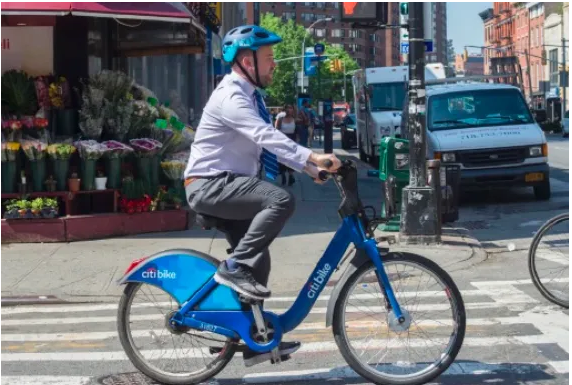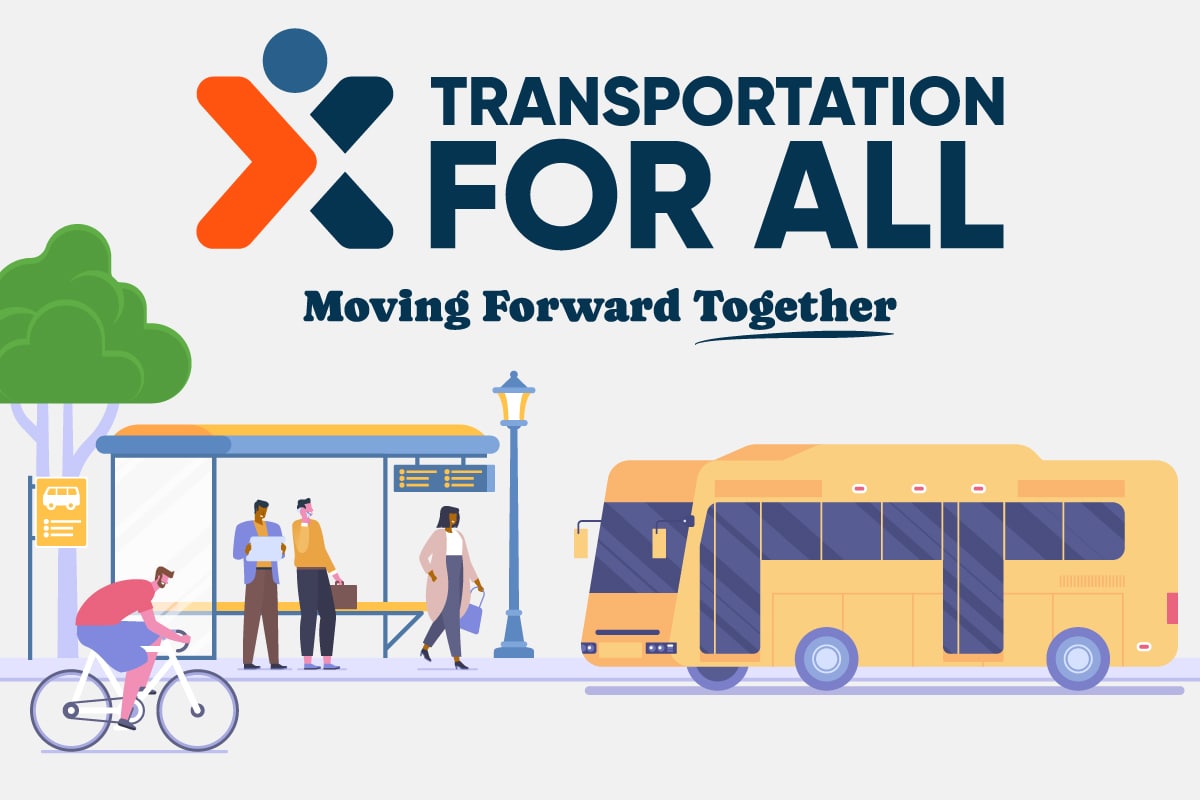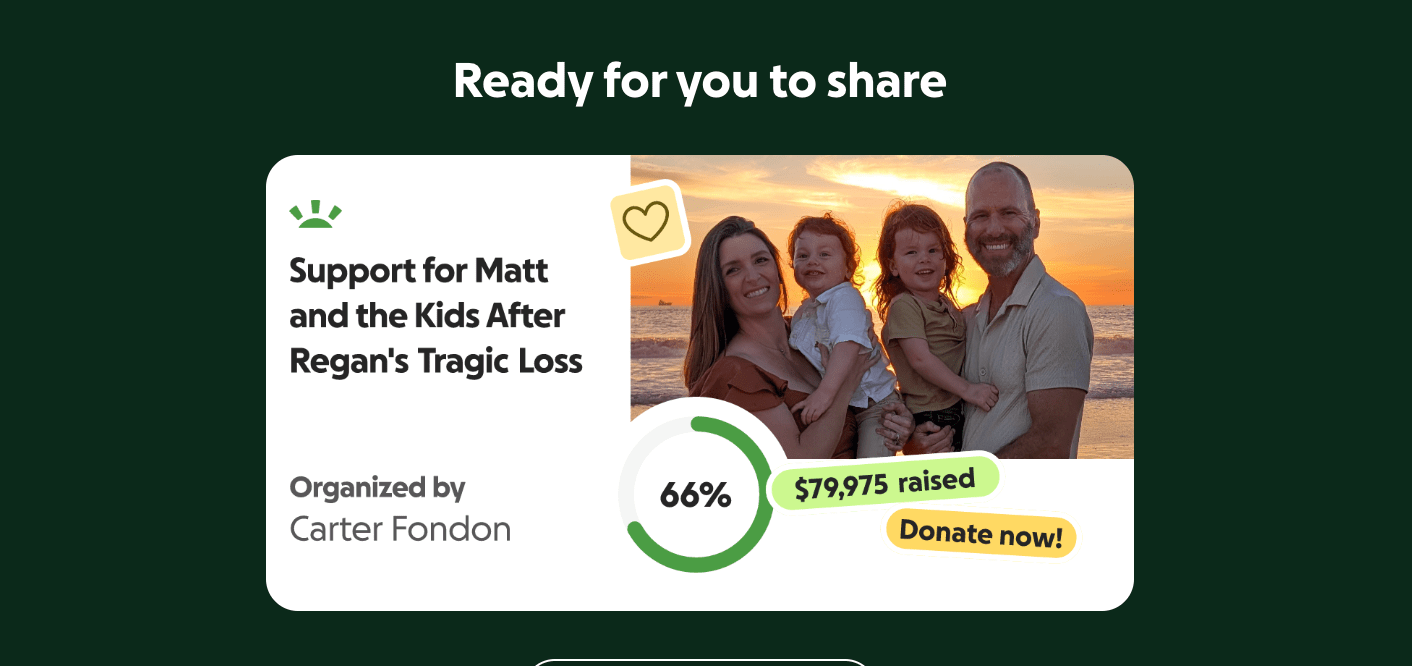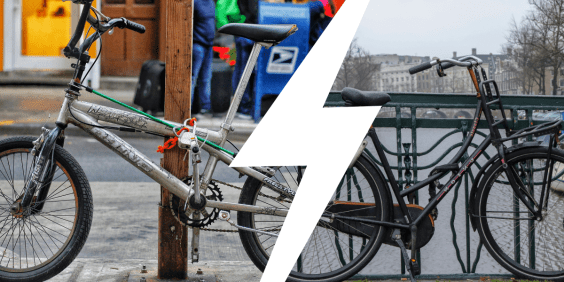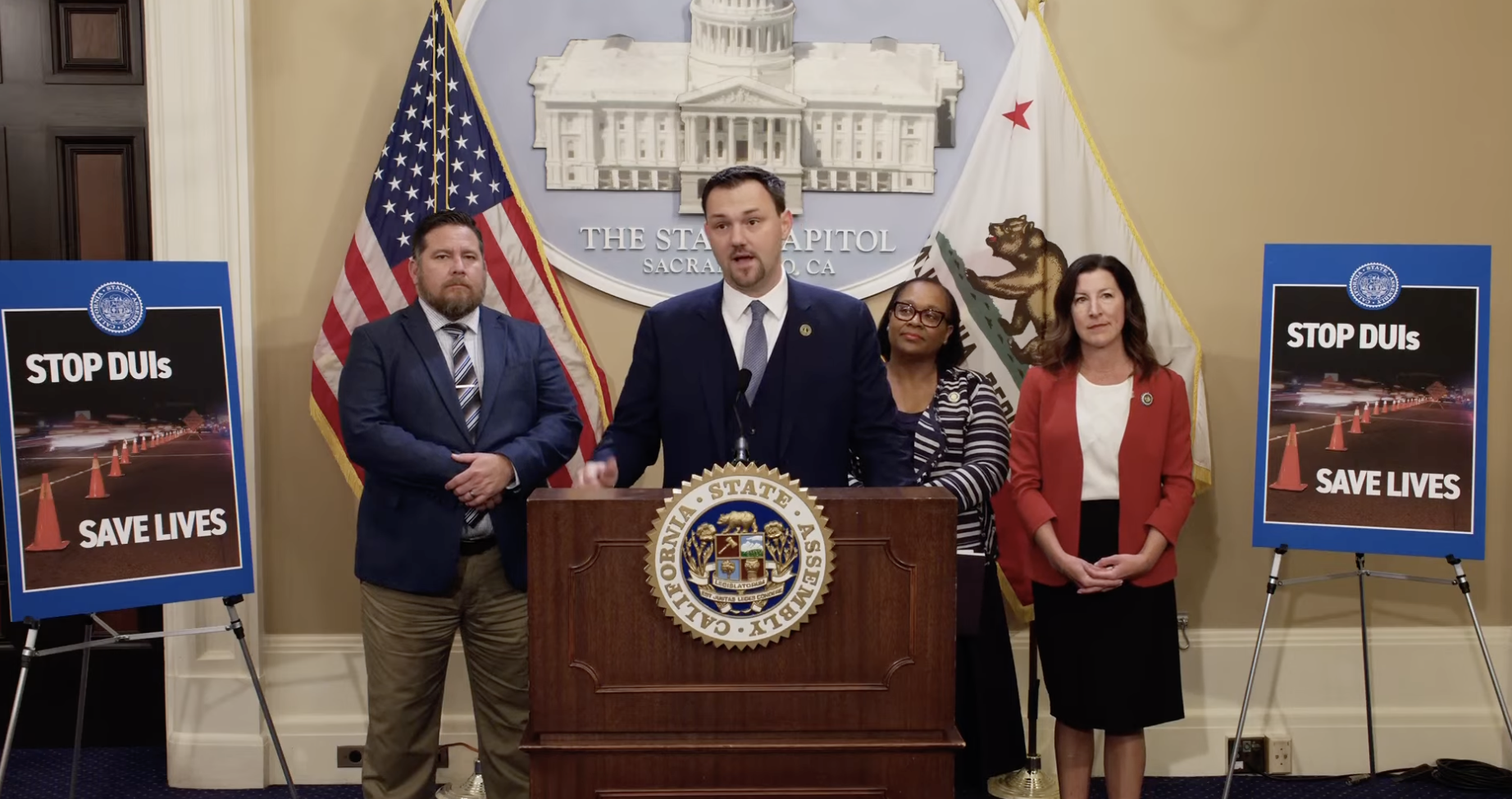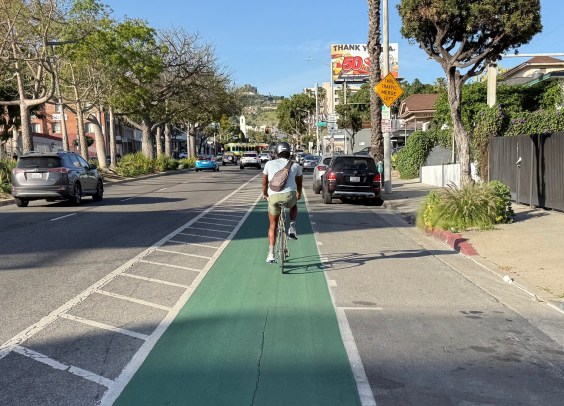Well, this is awkward.
Capping a week when Mayor de Blasio said mandatory bike helmet laws might be "the right direction," a group of city transportation officials from all over America urged the National Transportation Safety Board to pull back from its recommendation earlier this week that all states require adults to wear helmets.
Corinne Kisner, executive director of the National Association of City Transportation Officials said the NTSB recommendation issued Tuesday "flies in the face of best practice on bicycle safety."
"NACTO strongly urges NTSB to remove the recommendation that states adopt mandatory helmet laws and work with their federal and state partners to enshrine the remainder of this critical, timely, and well-researched report into practice," Kisner added.
The statement may not reflect Mayor de Blasio's sentiment on the issue — he has said twice in the last three months that he is looking at mandatory helmet laws — but it does reflect the views of his Department of Transportation Commissioner Polly Trottenberg, who, like the NTSB staff, has said better road design and lower speed limits help cyclists more than helmet laws.
“In cities where…adults [are] required to wear cycling helmets, cycling goes down — particularly for things like Citi Bike,” Trottenberg said last month.
To be clear, the New York City Department of Transportation does not oppose helmets, which many studies say make cyclists safer. The agency gives out tens of thousands of helmets for free each year.
Here is Kisner's entire statement:
For the first time since 1972, the National Transportation Safety Board turned its attention to bicycle safety and released a series of recommendations to protect people on bikes on U.S. streets. NACTO applauds the Board’s road design and bike infrastructure recommendations and renewed focus on this topic as cyclist fatalities in the US hit an 18-year high in 2018. However, a last-minute recommendation that States adopt mandatory helmet laws flies in the face of best practice on bicycle safety.
While requiring helmets may seem like an intuitive way to protect riders, the evidence doesn’t bear this out. Experience has shown that while bike helmets can be protective, bike helmet laws are not.
In Australia, where mandatory adult helmet laws were introduced regionally between 1990 and 1992, bike count and safety data from the time showed that helmet laws actively discouraged people from riding a bike while producing no notable safety gains. Closer to home, North American bike share systems have low rates of helmet usage (estimated at below 25%), yet are incredibly safe, with four fatalities over more than 160 million trips.
Making people on bikes more visible makes them safer. Data from numerous cities demonstrates that risk to an individual cyclist drops as overall bicycle ridership grows.
Building safe places to ride, including all-ages-and-abilities bike lanes, and increasing bike ridership are the most powerful methods to improve safety—not only for people riding but for all road users. Governments at all levels must embrace this finding and work to build and expand high-quality bike infrastructure to truly protect cyclists and eliminate fatalities.
NACTO strongly urges NTSB to remove the recommendation that states adopt mandatory helmet laws and work with their federal and state partners to enshrine the remainder of this critical, timely, and well-researched report into practice.
